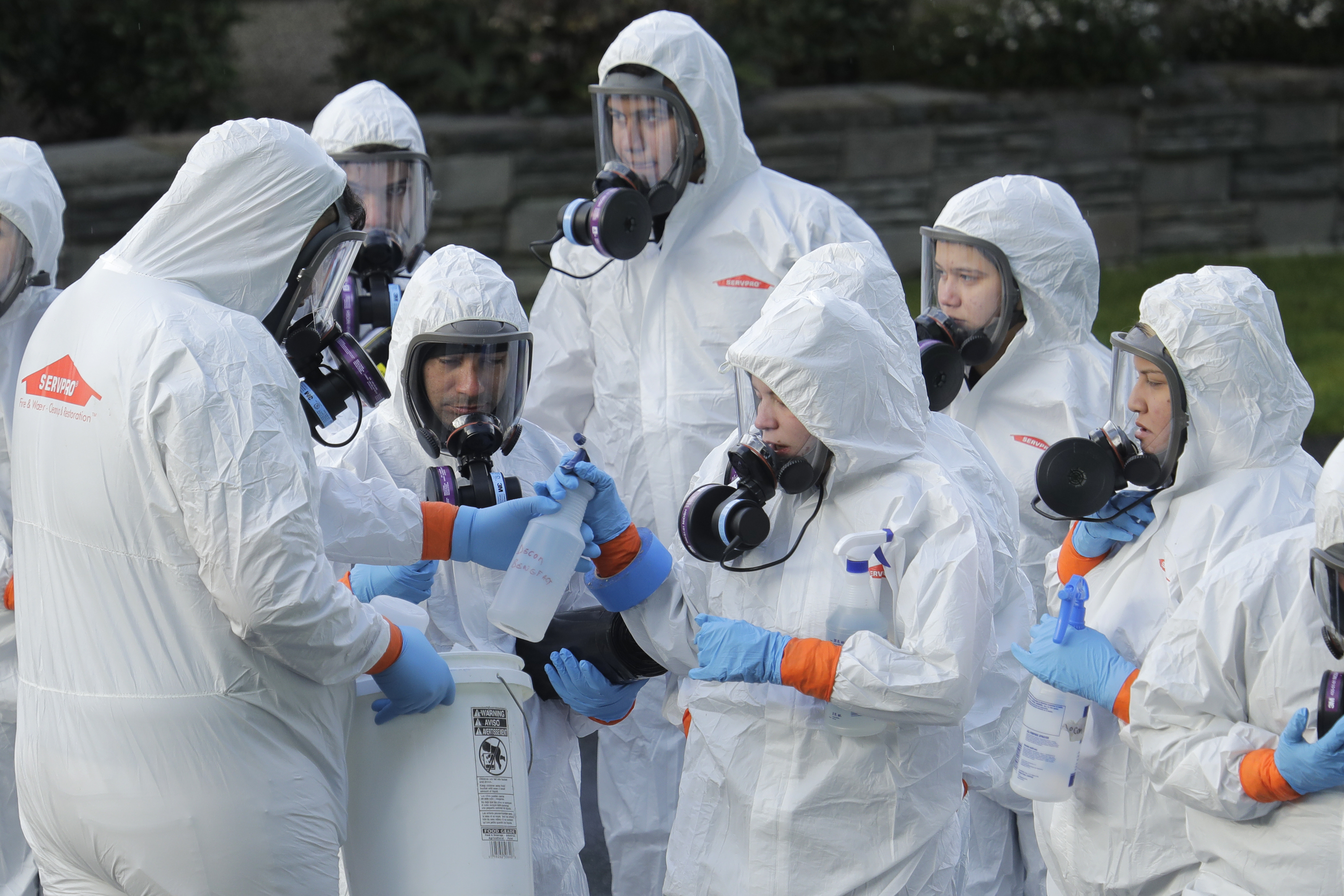What to Know
- What are the words and phrases that you relate to the coronavirus pandemic?
- From "Zoom" to "social distancing" to "Blursday," how we speak and think of our common vocabulary have changed in the year since the COVID-19 pandemic was declared.
- Three experts in the field of linguistics and sociology talk about the pandemic and its impact on how we speak now and how we might speak in the future.
"Pandemic," "Zoom," "social distancing" and “Blursday.”
The coronavirus pandemic has changed just about everything in our world, including the words and phrases we know and how we use them while wearing our masks or online.
The meanings of "contact tracing," "flatten the curve," "isolation," "quarantine," "virtual learning" and "lockdown" have all evolved since the World Health Organization declared the pandemic on March 11, 2020. Add in new slang such as “Zoombombing” and “the Rona,” and it’s almost like we are speaking a new English language after 12 months.
Get Tri-state area news delivered to your inbox. Sign up for NBC New York's News Headlines newsletter.
But that isn’t as uncommon as you might think.
“Language changes, that’s just part of its nature,” said Dr. Nicole Holliday, assistant professor of linguistics at the University of Pennsylvania.
None of this has happened in a bubble. As stress increased in 2020, our vocabulary changed.
“COVID” is probably the biggest word to enter our consciousness in the past year as the coronavirus entered the bodies of millions of Americans, it was even the American Dialect Society’s word of 2020. At the start of the year, who knew what COVID was?
“Social changes can bring sort of a boom of new words that are used more commonly or old words that sort of get resurrected," Holliday said. "As the whole world has changed as a result of the pandemic, that has opened up some opportunities for new words to spread."
'Zoom' Has Become the New 'Google' or 'Band-Aid'
Just think of "Zoom." What comes to mind?
One year ago, you probably thought of it as just something going fast. It wasn't the commonly-used term for online video chatting.
"We use the platform Zoom to connect in our work and personal lives during the pandemic, so now Zoom has become not only the name of the platform, but can also be used as a noun or verb to describe the action itself of meeting on Zoom. This meaning has shifted," said Dr. Elaine Shenk, professor of Spanish and Linguistics at Saint Joseph’s University in Philadelphia.
"Zoom has kind of become the 'Band-Aid' of the year. We say 'Band-Aid' when we mean bandage -- Band-Aid is one brand of bandage -- but it's the brand that we reference all the time," said Dr. Dustin Kidd, associate professor of Sociology and director of the Intellectual Heritage program at Temple University in Philadelphia.
Heck, we now even have "Zoombombing" -- where an uninvited person enters an online chat -- and "Zoom fatigue" -- when people get tired form so much video chatting, Kidd said.
Vocabulary Changes From Our Bubbles to the World Around Us
Not every word, however, is the new "Google," which is synonymous with any online search. There are other lesser used words that a year ago you likely didn’t know or thought of differently.
“New words or phrases can appear to describe what we are experiencing, but it's also common that we extend the meaning of words that we already have to fit a new concept or situation,” Shenk said.
“’Doomscrolling:’ This is not a new word from this past year, but it definitely seems to be more prevalent,” Shenk said. “It's a blended word that seems particularly apt this year, as people spend endless minutes or hours scrolling through their phones or laptops.”
So, what are other words we may define differently or are now aware of? "Essential" (as in "essential workers"), "contact tracing" and "community spread" come to mind, Shenk said.
“We may hear one of these words and mentally fill in the other because of how often they are used together,” she said.
Why 'Social Distancing' Could Be a Better Term but Has Caught on Anyway
The entire way that we interact has evolved due to the circumstances experienced during the pandemic.
“People are experiencing life in isolation," Kidd said.
In this case, the words we use may make that feeling worse. The term "social distancing" has caused a stir among linguists, Holliday said.
“The idea is that we don’t want people’s social networks to break down, we just want them to stay apart from each other," she said.
"We're reminded all the time to maintain social distancing," Kidd said, noting the stickers you see at most public places. "We are having to kind of dial that back. what we meant was physical distancing. What we need is 'social nearness.'"
People need to be in contact so "we have a sense of connection," Kidd said.
That's where Zoom and social media emerged as friends and family scheduled time together from afar.
Our Collective Phrases and Words Are Emerging From Our Digital Worlds
Technology is changing how we speak as we use it, the professors said.
Who hasn’t said “you’re muted” or “you’re on mute” in the last week?
"These things are now super common for us to say everyday," Holliday said. "There's just a lot more things that we didn't have a use for before a pandemic and before we transitioned to living so much of our lives in a virtual space."
Young people, born after Millennials, are even being called "Zoomers" by some, but Holliday said that young people might not agree with that term.
Digital terms have a worldwide reach, Holliday said. "COVID" works in any language.
"Because we're doing these things in digital space, when we type these words or say these words they reach the entire world and not just the community we're in," Holliday said.
'Zoomers' Are 'Voldemorting'
Historically artists or young people are the ones leading language changes. “There’s a lot of folks that will always complain that ‘The kids these days are ruining the language,'" Holliday said.
The word “cool” stems from jazz culture, while even Shakespeare was blamed for “ruining” English when he first came out, she noted.
And there can be a backlash to language change. The word "pandemic" has even taken on a new meaning to many.
Fatigue over the word itself and its negative connotation has led people on TikTok and other video apps to replace pandemic with other P-words. It's called Voldemorting, Holliday said, from the "Harry Potter" books, in which characters would not say the villain's name.
"All of the people that are not saying pandemic and saying all the other words that start with a P," she said.
You can live your life in a "panini press" instead. For real.
What Becomes of These Words Post-Pandemic?
“The real question is, 'how is this going to impact our language over time?'” Kidd asked. "Language is living and we can ultimately lose sight of that."
It could be years or even decades before we truly understand the full extent of how our language has changed. Words we also have been using incessantly over the past year could nearly disappear as the pandemic comes to an end, Holliday said.
"Some of these words will not be useful again," she said.
Which ones? That's up to us all.
"Trying to slow or stop linguistic change by prescriptive means typically does not win out over the collective decision of the people who speak that language," Shenk said.



